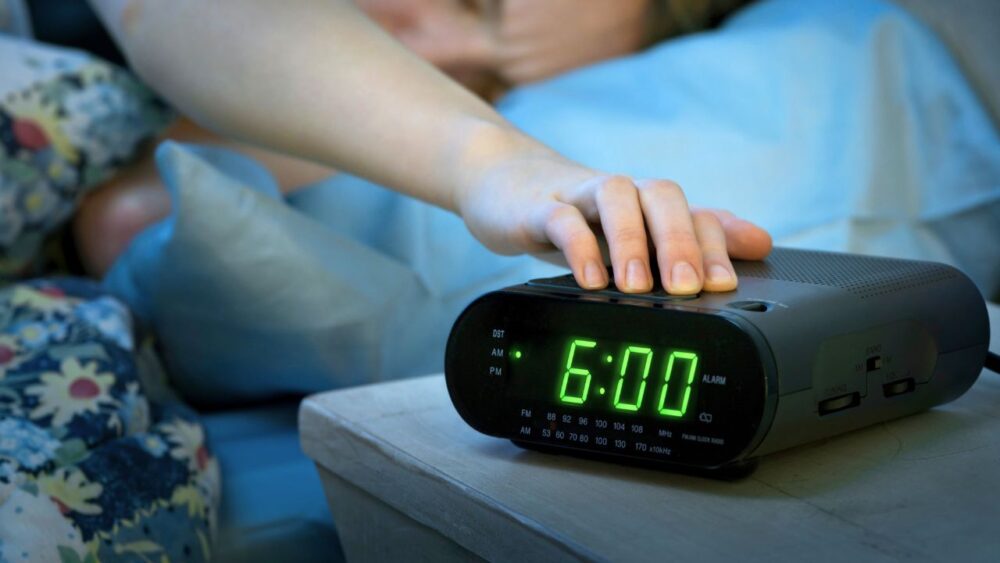While the snooze button is tempting, it might be doing you more harm than good.
A new global study examining data from more than 21,000 people found that snoozing occurred in more than half of all sleep sessions, with the heaviest users clocking up to 20 minutes each morning. However, medical experts warn that relying on this tempting function will likely interrupt critical REM sleep.
Some people love it so much that they set their alarm early enough to give them time to enjoy a snooze or two each morning. Among those examined, the study found that Americans were among the biggest abusers of the snooze button. Unsurprisingly, the function was found to be leveraged more often during the work week compared to the weekend.
The problem with waking too soon and using the snooze button is that it disrupts the critical REM sleep phases. Snoozers settle for fragmented, light sleep instead of experiencing an extra 10 to 20 minutes of restful sleep.
“Many of us hit the snooze alarm in the morning with the hope of getting a ‘little more sleep,’ but this widely practiced phenomenon has received little attention in sleep research,” said the study’s lead author Rebecca Robbins, PhD, in the Division of Sleep and Circadian Disorders Medicine at Brigham and Women’s Hospital, per Neuroscience News.
“In a global sample we found that more than half of sleep sessions end in a snooze alarm, and users spent an average of 11 minutes in between snooze alarms each morning before waking,” said Robbins.
Interestingly, people sleeping five or fewer hours each night were found to use the function less. The researchers theorize these individuals are more pressed for time in the morning and do not have the luxury of hitting snooze before rushing off to work, for example.
“Unfortunately, the snooze alarm disrupts some of the most important stages of sleep,” warned Robbins.
“The best approach for optimizing your sleep and next day performance is to set your alarm for the latest possible time, then commit to getting out of bed when your first alarm goes off.”


